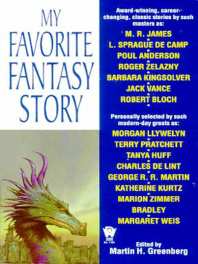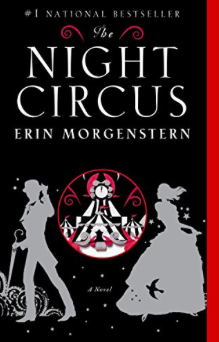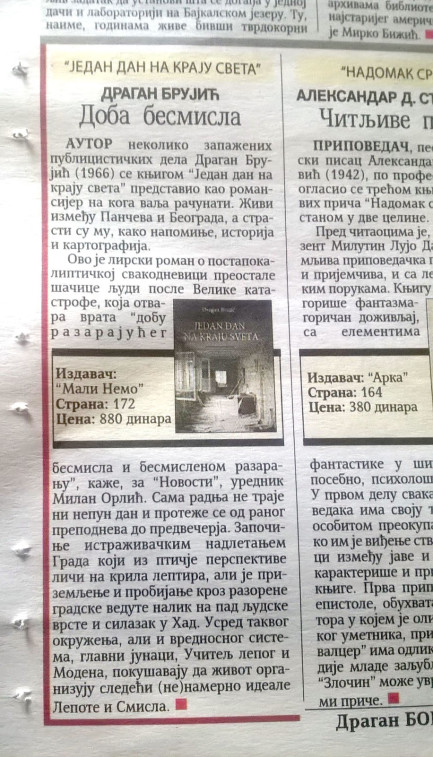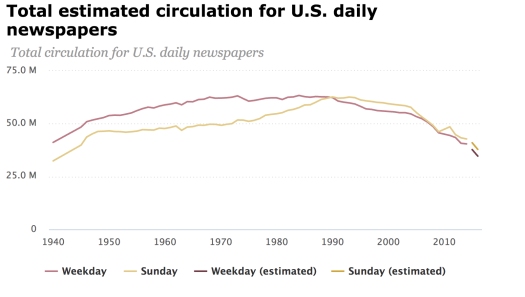I first heard of MR James in a completely unexpected place. It happened a few years ago while reading a Martin H. Greenberg anthology called My Favorite Fantasy Story*. This is a book from the early oughts in which modern writers (including George RR Martin for those of you who must have every printed mention of the man in your collections) chose ONE fantasy story from all of the history of writing and gave their reasons for calling it the best ever.

As you can imagine, this produced an eclectic mix, with everything from Mopsa the Fairy, a novella from 1869 which was, quite frankly, the strangest selection of the book as well as, in my opinion, the weakest, to a Terry Pratchett tale. Also in the mix were not one but two of Vance’s Dying Earth stories (Martin chose the best of these) which one is never certain whether to classify as SF or Fantasy.
Finally, there was this weird little ghost story by some guy named MR James, Oh, Whistle, and I’ll Come to You, My Lad”, chosen by Morgan Llywelyn, which, though a change of pace from most, was one I remembered years later (all right, I’ll admit there were a couple that I still recall, particularly the Zelazny and the two by Vance, but the ghost story was in there).
It was completely different from what I was expecting, but not in a bad way like Mopsa the Fairy. It was a creepy ghost story of an unseen spirit messing with the protagonist at a pleasant seaside resort. No gore, no dismemberment, just the much more relatable experience of being alone and certain there was something watching you, and that that something was an evil something.

Years later, I took out a subscription to Easton Press’ Horror Classics lineup (I do this for two reasons: the first is that they are very pretty books, and the second is that they often select books that I would never have chosen for myself). One of the books they sent me was a volume by MR James entitled Ghost Stories of an Antiquary, and it turns out that it’s full of tales philosophically similar to this one. All of them have barely seen, sometimes imaginary spirits stalking the main character without ever really becoming explicit. James always leaves the question of whether they are real or product of madness hanging in the air–though the stories, if taken at face value, demand for the explanation to be the former.
These are extremely different from what Le Fanu was creating a few years earlier (despite James familiarity with Le Fanu’s work). They are much less sexual–not sexual at all, in fact–and they don’t give the reader an explanation about what was happening. While Carmilla is revealed to be a vampire, James’ haunts remain mysterious.
The best story in the collection, describing what literary experts would refer to as “some seriously bad ju-ju”, was likely “The Ash Tree”, but each will find his or her own favorite among the tales.
More interesting than a review here (there are dozens available), is to talk about MR James himself. He is a man that one thinks would have enjoyed Classically Educated. Not just a writer, but a scholar and an administrator, he was a polymath indeed. The fact that his ghost stories have eclipsed the rest of his reputation is almost sad.
One can imagine him sitting in his wood-paneled study or University rooms and exhaustively studying the writers of the supernatural that paved the way for him. I can especially see him as an expert on many obscure Victorian writers of ghost stories that history has forgotten… because, though written in the 20th century, Ghost Stories of an Antiquary is definitely a Victorian book. It deals with Victorian preoccupations with a Victorian structure and informed by Victorian mores.
Though he is credited with creating the “antiquary ghost story” subgenre, it seems to me that James was not looking to innovate. Quite the opposite, in face: the never-changing world of academia (Cambridge and Eton in his case), inspired him to look to the past and refine it.
In doing so, he did something new**, but only by chance.
*Though Gardner Dozois had a habit of dismissing Greenberg anthos as “pleasant but minor” in his Year’s Best books for ages, I’ve always found his collections to be pleasant and to contain at least a few memorable stories. Not to try to contradict Dozois, who is a notable student of the SFF field, but sometimes a lack of readability is celebrated as creating “better” fiction, which seems unfortunate.
**I always think that the 80’s film Gremlins had to take at least some inspiration from this book.
Advertisements Share this:- More





